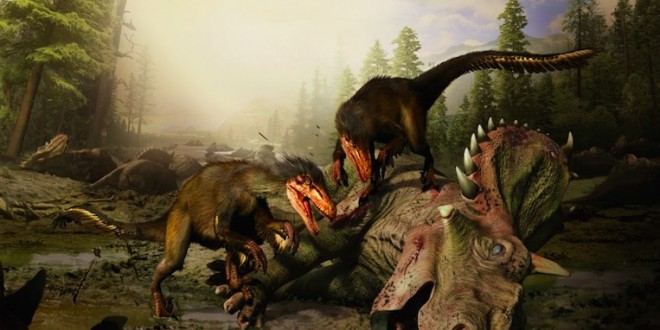A new species of dinosaurs described as a ‘savage predator’ has been discovered in a remote part of Canada, by a University of New England paleontologist.
Dr Phil Bell from the School of Environmental and Rural Science says the new species, called Boreonykus, was a relative of Velociraptor, made famous in the Jurassic Park films. Boreonykus had killer claws but would have only been about two metres long and as tall as a dog.
“The bones we have show it would have had big hand and foot claws, a real killing claw. The claws would have been used to hunt down prey. We have a handful of teeth that are like serrated steak knives. These would have been pretty savage predators.”
Dr Bell says the most important bone from the skull helped to clinch what type of animal it was.
“Although we don’t have the whole skeleton we know based on parts of the skeleton that it belonged to this type of dinosaur. The raptors skin was probably feathered to keep them warm in the cold dark winters in north Canada.”
He said the discovery is significant as it fills an important gap in how the raptors moved and adapted to the environment.
“Its closest ancestors were from Mongolia, so this species probably crossed the land bridge from northern Asia to North America.”
“The first bones were discovered in 1988 and laid unstudied in a museum in Alberta for 25-years. We then started to turn up a few more bones from the very same spot in 2012, so that reinvigorated interest.”
These bones were found amongst thousands of bones from another dinosaur. So 1 in every 1000 bones was from this new species.
Agencies/Canadajournal
 Canada Journal – News of the World Articles and videos to bring you the biggest Canadian news stories from across the country every day
Canada Journal – News of the World Articles and videos to bring you the biggest Canadian news stories from across the country every day



